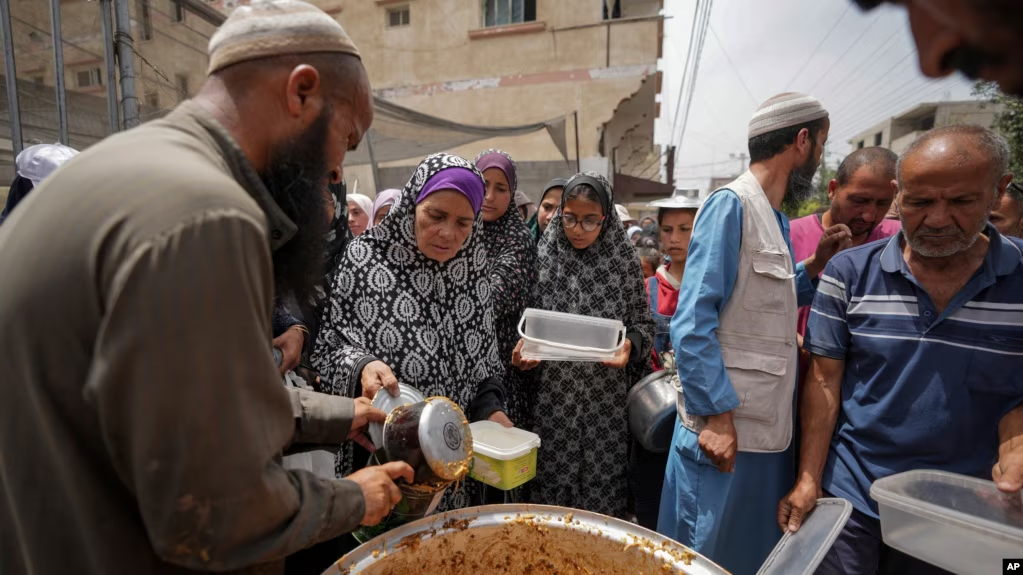The humanitarian crisis in Gaza has taken a dramatic turn as the United Nations announced the suspension of its aid operations due to conflicting evacuation orders. This pause has heightened concerns about the already dire situation in the region, where millions of civilians rely on international aid for their survival. The suspension has sparked a global outcry and underscored the immense challenges faced by humanitarian agencies working in conflict zones.
Conflicting Evacuation Orders Lead to Confusion
The UN’s decision to halt its operations in Gaza comes after a series of evacuation orders that have created confusion on the ground. These orders, issued by various authorities, have left both aid workers and civilians uncertain about where to go and what to do. The situation has been further complicated by the fluid nature of the conflict, with shifting frontlines and sporadic fighting making it difficult to establish safe corridors for evacuation.
The UN’s relief operations in Gaza are a lifeline for over two million people, providing essential supplies such as food, water, medicine, and shelter. The sudden suspension of these operations due to the evacuation orders has left many in the region vulnerable to worsening conditions. Aid workers have expressed their frustration and concern over the inability to reach those in need, especially as the situation on the ground becomes increasingly desperate.
Humanitarian Crisis Deepens
The suspension of aid operations could not have come at a worse time for the residents of Gaza. The ongoing conflict has already led to severe shortages of basic necessities, and the halting of UN assistance threatens to exacerbate the humanitarian crisis. Hospitals are struggling to operate without adequate medical supplies, while food and clean water are becoming increasingly scarce. The UN has warned that if aid does not resume soon, the situation could reach catastrophic levels.
The humanitarian community has been vocal in its criticism of the conflicting evacuation orders, which have effectively paralyzed relief efforts. There are calls for immediate clarity and coordination from all parties involved to ensure that aid can reach those who need it most. The UN has urged for the establishment of safe zones and corridors that are clearly communicated and respected by all sides, allowing civilians to evacuate safely and aid workers to resume their crucial work.
International Response and Calls for Action
The international community has responded with alarm to the suspension of UN operations in Gaza. Countries and organizations around the world have called for an immediate resumption of aid delivery and for a resolution to the confusion over evacuation orders. There is a growing consensus that the situation in Gaza requires urgent international attention and intervention to prevent further loss of life and suffering.
Several nations have offered to mediate between the conflicting parties to establish clear guidelines for evacuation and aid delivery. Diplomatic efforts are underway to bring together the various stakeholders to negotiate a solution that will allow the UN and other humanitarian agencies to resume their operations safely. The situation has also prompted discussions at the UN Security Council, where member states are considering potential resolutions to address the crisis.
The Struggle of Aid Workers
For the aid workers on the ground in Gaza, the suspension of operations is a heartbreaking setback. Many of them have been working under extremely difficult conditions, risking their lives to provide assistance to those affected by the conflict. The confusion over evacuation orders has only added to their challenges, as they are now unable to carry out their mission of delivering aid to the most vulnerable.
Aid agencies are continuing to advocate for their workers’ safety and the protection of civilians in conflict zones. They emphasize the need for all parties to the conflict to adhere to international humanitarian law, which mandates the protection of civilians and the facilitation of humanitarian assistance. The hope is that with renewed international pressure and coordination, the UN will be able to resume its vital operations in Gaza and alleviate the suffering of those caught in the crossfire.
A Crisis in Need of Resolution
The situation in Gaza remains volatile and complex, with no immediate end to the conflict in sight. The suspension of UN aid operations has highlighted the critical need for better coordination and communication between all parties involved in the conflict. As the international community continues to monitor the situation closely, the priority remains clear: to ensure that aid can reach those who need it most and that civilians are protected from the ongoing violence.











